Kegel muscles have different names: pelvic floor muscle or pubococcygeus muscles, however, each name stands for the same set of muscles and ligaments which support the pelvic viscera (organs). In a woman’s body it stretches from the pubic bone to the tail bone, surrounding the urethral orifice, the vagina, and the anus.
It is important to remember that the problem of weakened Kegel muscles, despite the popular belief, does not only affect women. Men should also take care to keep this group of muscles in good shape. In a man’s body the Kegel muscle surrounds the pubic bone and the prostate.
When the muscles are well toned they are well tensioned, holding the organs in a proper way. When these muscles are weak and flaccid – this is where problems arise.
In the European culture Arnold Kegel MD, an American gynaecologist, was the first one to discover the significance of pelvic floor muscles’ activity. He developed a set of exercises for pelvic floor muscles training. Everyone, regardless of age or gender, should take these exercises.
Strong Kegel muscles make sexual sensations stronger, and there is a significant chance of not developing such health issues as urinary incontinence, or a prolapsed bladder. It can make giving birth easier and less painful for a woman, with quicker recovery afterwards, and lesser probability of suffering from prolapsed bladder in the future.
While doing Kegel exercises one should not tighten the abdominal muscles. It can be difficult at first, so control whether your abs are tightening by holding your palm on your stomach slightly below the belly button. If you are tightening your abs stop the exercise, relax and try again.
Note: The general idea behind Kegel exercise is the same for men and women.
During your visit to the toilet try to hold the stream of urine for a moment while urinating, and then let it go. Try doing it every time you visit the toilet.
There are two ways of finding your Kegel muscles: try moving your fully erect penis, or try to hold the stream of urine while using the toilet.
IMPORTANT NOTE: It is not advised to frequently perform the exercise while urinating. After a few weeks of practice in the toilet you will be able to control tensioning your Kegel muscles without urinating.
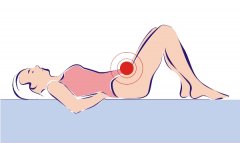
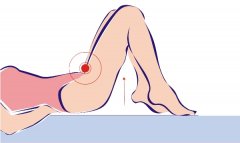
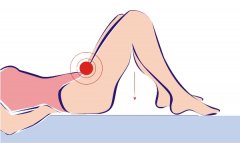
Lie on your back, bend your knees, rest your feet on the floor, and put your hands below your lower back. Try to press your hands with your lower back, simultaneously trying to raise your hips from the ground, tensioning your muscles just “like on the toilet”.
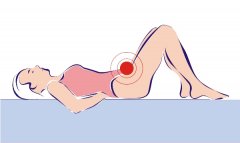
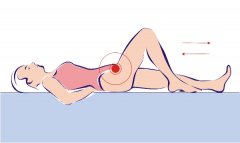
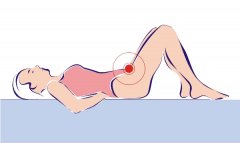
Lie on your back, bend your knees, rest your feet on the floor, and put your hands below your lower back. Lightly press your hands with your lower back, and tension your vaginal muscles (as on the toilet). Hold the muscles tense while slowly straightening one of your legs, moving your heel on the floor. Take care not to alter the force of your lower back pressing your hands, nor change the tension of your Kegel muscles. Bring your leg back to the initial position and repeat the exercise with your other leg.
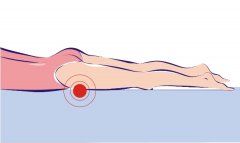
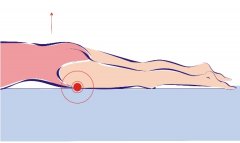
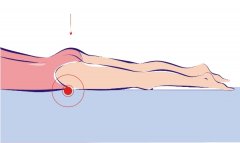
Lie on your stomach putting your hands together to support your forehead. Try to “curl up” your pelvis. Doing this move correctly makes your legs, pelvis, chest and arms rest on the floor, and only the stomach area rises from the ground. People of slim built should be able to lift the stomach up from the ground.
The moment you „get to know” your Kegel muscles, and have full control over them, you will be able to contract and relax that group of muscles in any position: standing, sitting or lying. You will be able to do it during everyday activities – brushing your teeth, on the bus, being at work etc.
Remember! The more regularly you will be exercising your Kegel muscles, the faster you will see the effect of your work, and your body will benefit from it sooner.
A well-chosen product means both the patient's comfort and less risk of serious pressure sores, as well as less work for the caregiver. Choose a product with our help.
Choose a product for your needsChoosing the right size of a product is very important. Finding a proper size is a crucial issue for user’s comfort. For this purpose try a tool facilitating the selection of size.
Choose the right size